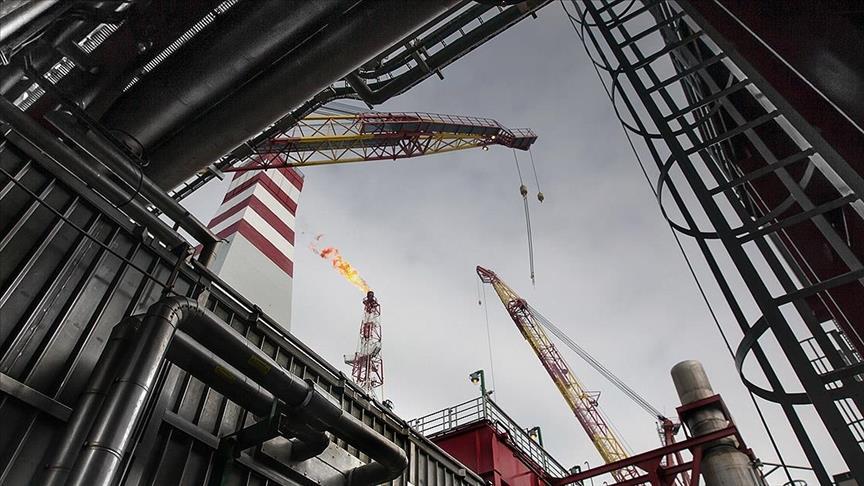The US Administration greenlit long-sanctioned Venezuela to start shipping Venezuelan oil to Europe as soon as next month to make up for embargoed Russian crude, however the move to revive the massively under-invested Venezuelan oil sector, which does not have enough capacity to offset lost barrels will have no material effect on prices, experts say.
The European Union (EU) countries have long been in search for alternative crude oil supplies to wean themselves off Russian oil, their most significant effort yet to hit the Russian economy over the war in Ukraine.
Among several other attempts, the EU bloc has turned to US-sanctioned Venezuela, however, the country鈥檚 oil production has fallen drastically due to weak infrastructure, political corruption, insufficient investment in the oil sector, sanctions imposed on the sector, and a lack of qualified personnel.
According to BP's report, Venezuela has the largest oil reserves in the world with 304 billion barrels of oil. In Venezuela, which produced about 2,3 million barrels of oil per day ten years ago, production fell below 1 million barrels per day in 2022.
-Maximum 400,000 bpd of oil expected to be brought online
After the Biden administration's recent decision to allow Italian Eni and Spanish Repsol to resume oil shipments to the European countries, country鈥檚 ability whether it will be able to meet the EU鈥檚 oil demand came under question.
鈥淭he waiver seems to be very restrictive and only allows oil shipment for debt repayment. It does not include any crude-for-fuel swaps that would help free up more volumes for exports,鈥� Fernando Ferreira, director of Geopolitical Risk Service at Rapidan Energy Group, told Anadolu Agency.
According to Ferreira, Venezuela鈥檚 exports to Europe could be marginal at best, 50,000-100,000 bpd between the two European companies.
He said the best-case scenario for the sanctions-easing at this point would be a change in the conditions under General License 8, which allows five US oil companies to continue working in Venezuela but under severe restrictions.
However, he warned, the impact on production will depend on how much flexibility the Biden administration is willing to give.
鈥淭he most permissive changes would add 200,000-400,000 bpd in 6-12 months and allow US and likely the EU companies to resume working in their joint ventures, commercialize equity oil (including to US refineries), and export diluent and equipment to service their operations,鈥� he said.
鈥淚n the grand scheme of global oil flows, that is pretty small, and this assumes that all US oil sanctions are repealed,鈥� Julien Mathonniere, an oil markets economist at Energy Intelligence Group, told Anadolu Agency.
However, Ferreira believes that a full lifting of energy and financial sanctions on Venezuela is not on the table as 鈥渢he Biden administration has made it clear that broader sanctions easing is contingent on a political agreement between Maduro and the opposition.鈥�
鈥淭alks between the two sides are starting up again but negotiations with the Maduro government are never straightforward, especially now that Caracas is negotiating from a position of strength.
Ferreira pointed to the upcoming presidential elections in Venezuela in 2024 and said 鈥淏iden will want to maintain some leverage to ensure a reasonably level playing field.鈥�
- Venezuela far from being viable alternative for EU
Easing sanctions on Venezuela to provide an alternative oil supply 鈥渋s great news for the companies involved,鈥� Ferreira said but he was also quick to stress that 鈥渋t does little to offset the loss of nearly 3 million barrels per day of Russian crude that flowed to Europe prior to the invasion.鈥�
Mathonniere pointed to some member of the Organization of Petroleum Exporting Countries (OPEC) which are struggling to achieve their production targets and export quotas. 鈥淭hen, how could a massively under-invested oil company like PDVSA in Venezuela achieve any better results?鈥�
He also underlined the 鈥渃rude quality problem鈥� in the event of crude oil flow from Venezuela to the European countries.
鈥淓ni and Repsol are likely to receive heavy, sour crude oil from Venezuela, like the country鈥檚 flagship Merey crude, which is typically destined to coking units and complex refiners. So, many refiners would not be able to process that type of oil, which limits the role of Venezuela as a silver bullet to the market鈥檚 current tightness,鈥� he explained.
He also confirms that the move will 鈥渉ave no material effect鈥� on oil prices.
鈥淩ussia increased its oil exports in March and April, partly to respond to higher prices. Did this affect global prices? No, it didn鈥檛, because Russian supply additions are not significant. Likewise, Venezuelan supply additions are even less likely to impact prices,鈥� he explained.
By Sibel Morrow and Zeynep Beyza Kilic
Anadolu Agency
energy@aa.com.tr


